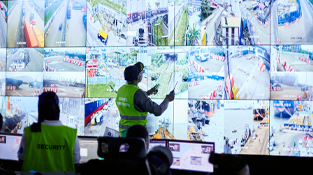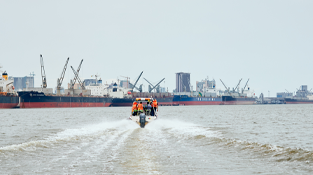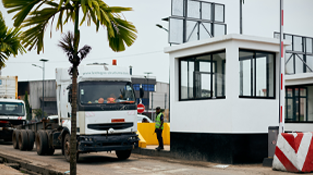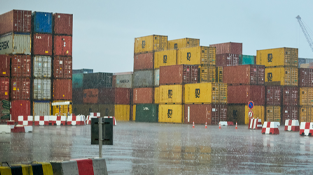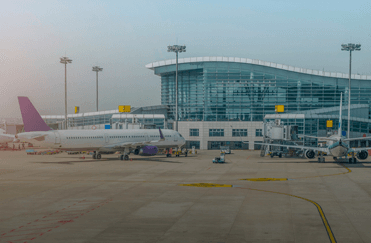Securing a strategic pillar of regional trade
At the heart of the Wouri estuary, the Port of Douala (PAD) plays a central role in Central Africa’s maritime ecosystem. As Cameroon’s largest port, it handles the majority of the country’s national traffic and serves as a vital gateway for landlocked countries like Chad and the Central African Republic. With continuous growth in traffic and an increasingly competitive regional environment, securing the site has become a strategic priority. Since 2019, this ambition has been realized through a key partnership between PAD and PortSec, via the Douala Port Security (DPS) program, now entering its third phase.
The DPS program is part of an ambitious effort to elevate the Port of Douala (PAD) to international security standards, in line with ISPS Code requirements. The goal is clear: ensure the protection of critical infrastructure while maintaining operational efficiency and building confidence among economic players. To achieve this, a comprehensive set of structural reforms and technological innovations has been implemented.
This program deploys an advanced surveillance system, combining cameras, radars, drones, and fiber optics to secure the port while ensuring smooth operations.
However, the program goes beyond just technical equipment; it also focuses on strengthening human resources. Over 500 security agents have been trained to international standards, and a fully operational medical intervention unit ensures rapid response in case of an incident.
The results are already visible. A significant reduction in logistical losses and an improved reputation among international stakeholders reflect the program’s success. The industrial occupancy rate of the port area, which was 30% in 2018, has now exceeded 100%, clearly demonstrating the transformation of the PAD into a secure, competitive logistics platform aligned with Cameroon’s economic goals.
With Phase 3 of the DPS project, PortSec and the PAD are not only reinforcing the port’s operational foundations but also creating a lasting climate of trust. Security is no longer just a regulatory requirement; it is now a driver of performance, attractiveness, and logistical sovereignty.
